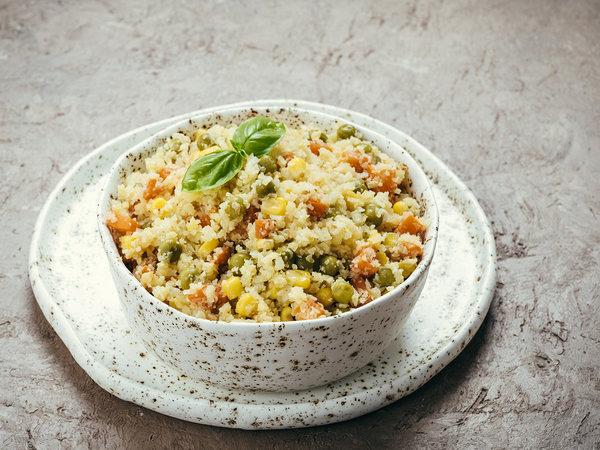


The ketogenic diet, and other forms of low carb/high fat diets (LCHF) have been controversial for decades when dietary fat was demonized as the weight loss villain. However, as of the early 2000's a number of human studies on low carb diets have shown impressive weight and health benefits to cutting carbs, not dietary fat.
It turns out that fat is a cleaner, less stressful source of fuel for the body than glucose and following a ketogenic or LCHF dietary regimen is a much better option in treating obesity and many other chronic diseases. Cruciferous vegetables are versatile, delivering great taste and great nutrition whether served hot or cold. The ketogenic diet changes the “fuel” that the body uses for energy from glucose to dietary fat.
In other words, the ketogenic diet is high in fat, low in carbohydrates, with adequate protein. Without a steady stream of glucose, your body is forced to burn fat, ultimately producing a metabolic state called nutritional ketosis. At that point, the body uses ketones, the by product of fat metabolism, as its main fuel source instead of glucose.
To achieve ketosis, you want to aim for a diet that is 60 to 80% fat, 10 to 30% protein, and about 5 to 10% carbohydrate. As you work towards reducing your carbohydrate intake, your focus should be on net carbs (total carbs - fiber). Focus on eating sufficient amounts of high fiber vegetables, for fiber functions as a fuel source for your healthy gut microbes, aids in elimination and satiety.
Avocados are the wonderful, fat-based fruit that only has 3.7 grams of net carbohydrates per half. Filled with health promoting nutrients, rich in healthy fats, and so versatile, avocados are a go-to keto-friendly vegetable (even though they’re technically fruits). Make a batch of guacamole to enjoy as a side dish or simply slice one in half, sprinkle on a little pink salt and enjoy as a snack or cut it in cubes and add to your favorite salad.
Like avocados, broccoli is remarkably versatile, and can serve as a replacement for rice, potatoes, and pasta in many dishes. You can serve it raw in salads, or steamed, fried, or baked au gratin. As a cruciferous vegetable, broccoli is non-starchy, so you can eat plenty of it without worrying about jeopardizing your ketogenic status. An entire cup only contains 6 grams of net carbs.
Dark, leafy vegetables are another staple of the ketogenic lifestyle. In the summer, they’re ideal for salads, and in the winter, they make wonderful additions to hot meals. Spinach, for example, only has 3 grams of net carbs per cooked cup. And during cold weather, there are few dishes as satisfying as high-fat creamed spinach. Spinach offers a great variety of vitamins and minerals, including high levels of vitamin K.

Cauliflower can be shredded to make a keto-friendly rice substitute that delivers great taste and nutrition. Cauliflower, a cruciferous vegetable like broccoli, is mild and tremendously versatile. Cauliflower rice is a great substitute for rice, couscous, or pasta, and since it’s white, it looks the part too.
Just grate it in a food processor and cook in butter or coconut oil in a skillet. Add spices and you’re good to go. Grated cauliflower mixed with shredded cheese and eggs can be baked to produce a keto-friendly pizza crust that you can top with tomato sauce, cheese, and other great toppings, along with spices like oregano and basil.
Often ridiculously abundant in late summer backyard gardens, zucchini is a king among keto-friendly vegetables. You can make zucchini fries and zucchini chips. Or, if you have a spiralizer, you can make it into keto “pasta” as a base for “keto carbonara” that’s so tasty you won’t miss the noodles. Zucchini is lower in carbs than many other types of squash, providing only 3 grams per cup. And it’s also a terrific source of vitamin C.
Cabbage is a cruciferous vegetable like broccoli. Sautéed in butter and used as the basis of Asian stir-fry dishes, it’s great in winter. Keto-friendly coleslaw has long been a summer favorite. All you have to do is shred the cabbage, add salt and lemon juice, and add mayonnaise, mustard, and spices for a summer side dish that’s ready for any (or no) occasion.
Delicious and high in fiber, brussels sprouts are cruciferous vegetables with just over 5 grams of net carbs per 100-gram serving. With only 56 calories, brussels sprouts deliver 4 grams of protein, 4 grams of fiber, and 274% of your recommended vitamin K! The most popular way to make brussels sprouts are by roasting or sautéing them, which brings out their flavor while keeping them crispy.
You can also steam them, or lightly cook them in a pan with a bit of olive oil. In general, vegetables that grow above the ground, as opposed to root vegetables that grow below ground, are lower in carbohydrates and facilitate ketosis better. The seven listed here are key examples.
If you’re interested in learning more about a keto-friendly diet, weight loss, and nutrition, we invite you to contact us at any time.